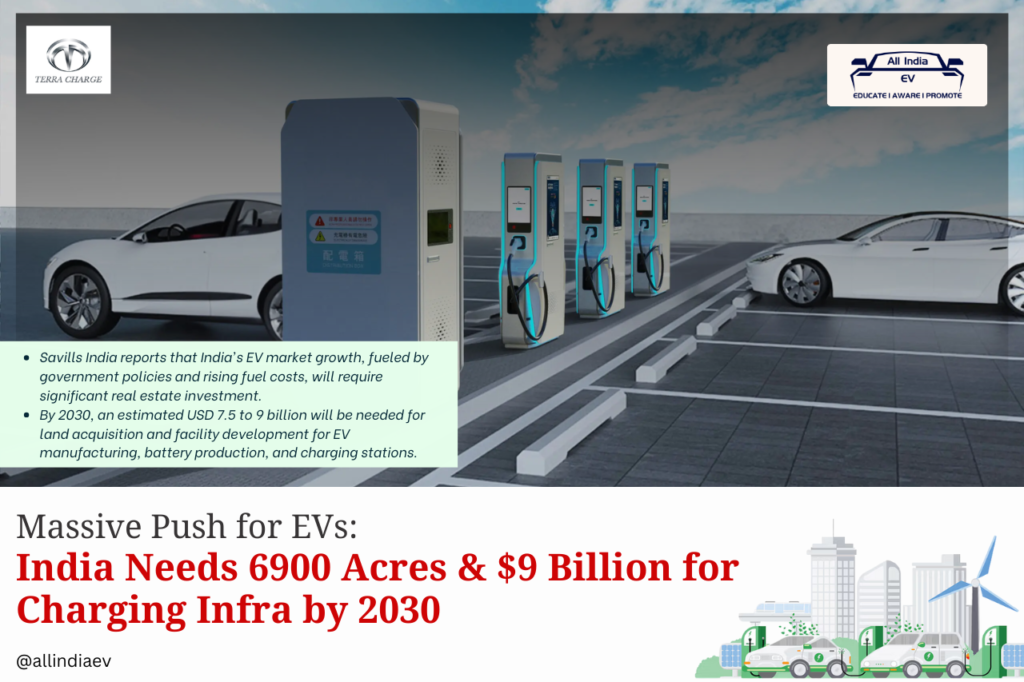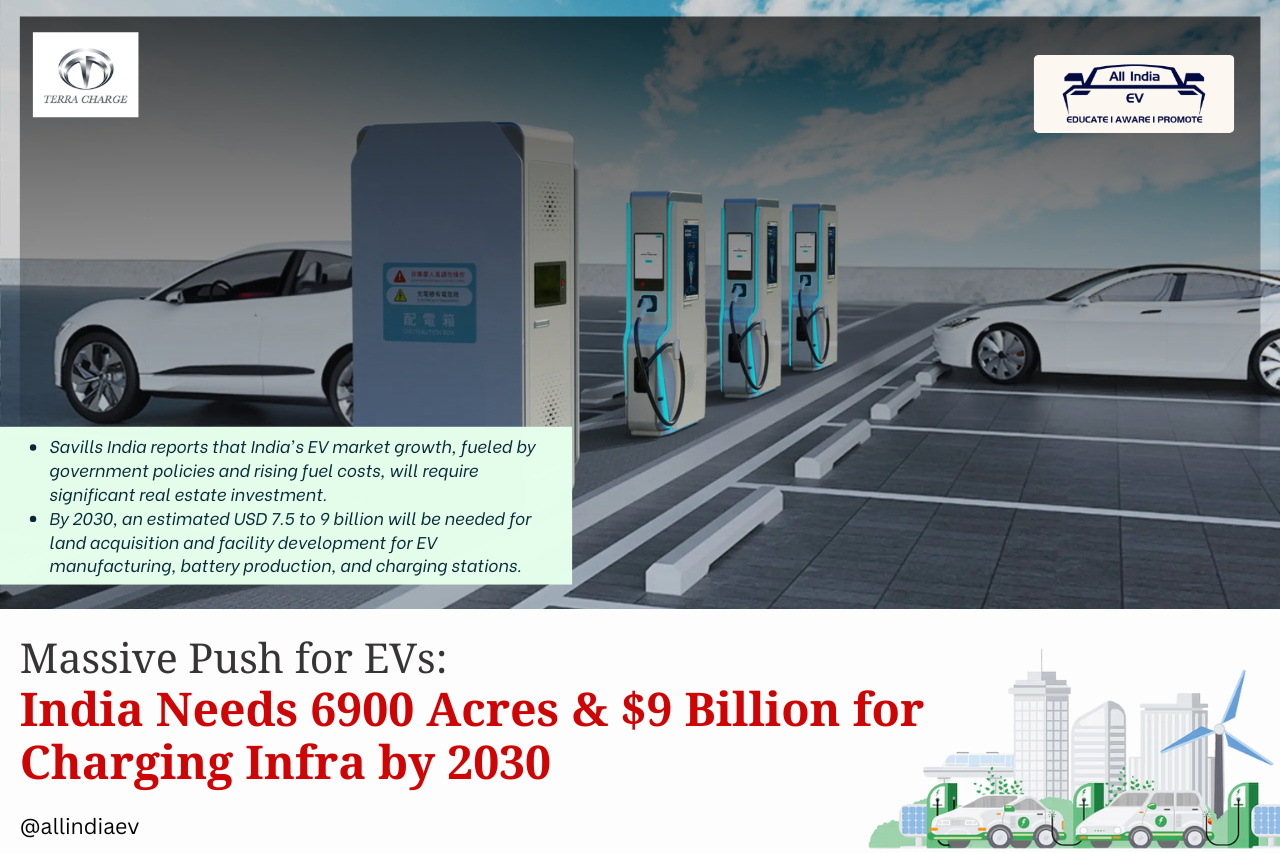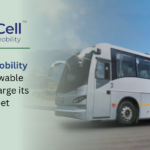
India Needs 6,900 Acres & $9 Billion Real Estate Investment to Support EV Growth by 2030, Says Savills India Report
India will require nearly 6,900 acres of land and an investment of up to $9 billion by 2030 to build the infrastructure necessary for electric vehicle (EV) manufacturing, lithium-ion battery production, and public charging stations, according to a new report by Savills India.
Titled “Charged for Change: How EVs Are Reshaping Indian Real Estate”, the report highlights how the EV boom is rapidly transforming India’s real estate landscape, driven by government policies, environmental concerns, surging fuel costs, and market momentum.
“An investment of $7.5–9 billion will be needed by 2030 for land acquisition and the development of industrial facilities to support the EV ecosystem,” said Savills India.
The report forecasts that:
- Land requirement: 5,760 to 6,852 acres
- Investment range: $7.5 billion (medium adoption) to $9 billion (high adoption)
- Built-up potential: 43.8 to 53.7 million sq. ft for manufacturing and battery facilities alone
✅ EV Real Estate Surge: Manufacturing, Logistics, and Warehousing
Srinivas N, Managing Director – Industrial & Logistics at Savills India, emphasized that India’s EV target of 30% penetration by 2030 will significantly stimulate demand for real estate across industrial and logistics segments.
“We’re seeing growing need for EV assembly units, battery manufacturing hubs, and storage/distribution facilities. The EV transition is not just technological, it’s spatial too,” he said.
With rising EV adoption, the supply chain infrastructure will require a boost — particularly strategically located logistics parks and multi-modal warehouses to handle batteries and EV components across the country.
✅ Government Push Fueling Infrastructure Boom
The government’s initiatives — such as the FAME scheme, PLI incentives for battery storage, and EV-friendly regulatory frameworks — are laying the foundation for this transition. These policies are also expected to attract further foreign direct investment and technology partnerships into the sector.
The Ministry of Road Transport and Highways, aligning with NITI Aayog and Rocky Mountain Institute (RMI) projections, estimates cumulative EV sales between 25.3–31.8 million units by 2030, with an annual average of 4.2 to 5.3 million units.
This scale of EV adoption will necessitate:
- 2,009 to 2,467 acres of land for core manufacturing operations
- Integration of charging stations into both urban and highway infrastructure
✅ What Lies Ahead
Savills India suggests that if India continues on its current path of proactive policy and market alignment, the country could not only meet its 2030 EV targets but also emerge as a regional hub for electric mobility manufacturing and logistics.As India accelerates its EV journey, the interdependence between real estate and green mobility will grow deeper — reshaping urban planning, industrial corridors, and the very geography of future mobility.










